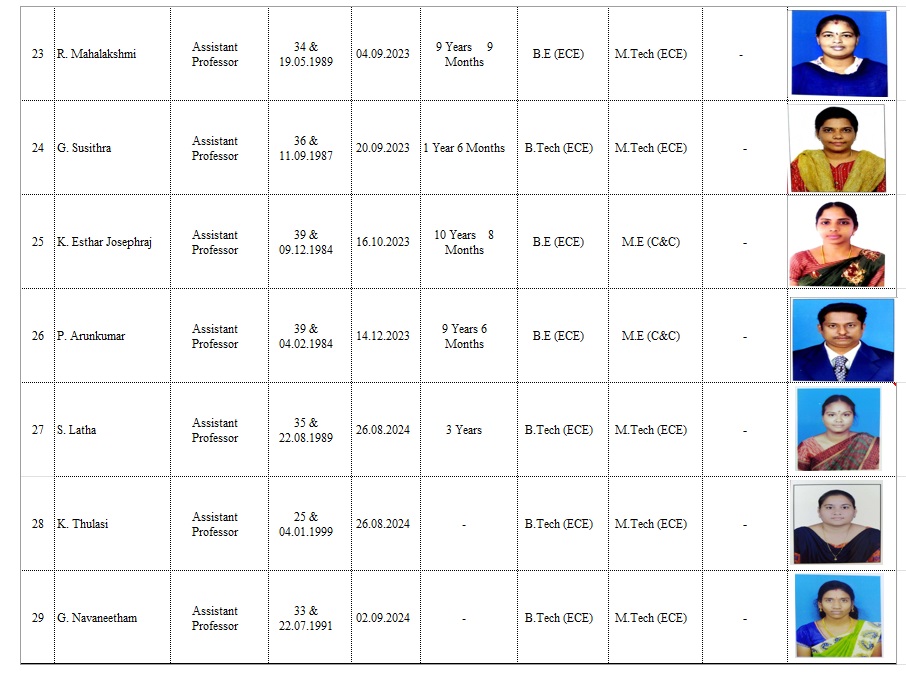Our vision is to develop the department into a full-fledged centre of learning in various fields of Electronics & Communication Engineering keeping in view the latest developments. Electronics & Communication Engineering Department endeavours to achieve excellence in imparting architectural education and training for changing socio-cultural aspirations, material and technological innovations, IT revolution and globalization of economies.
MISSION
The Mission is to create and sustain a community of learning in which students acquire knowledge and learn to apply it professionally with due consideration for ethical, ecological and economic issues. Also, it aims to provide knowledge-based technological services to satisfy the needs of society and industry and to help in building national capabilities in science, technology, humanities, management, and education.
Programme Educational Objectives (PEOs)
- Utilize knowledge, skills, and resources to enrich professional careers to pursue higher studies in the electronics and communication engineering and allied areas.
- Develop entrepreneurship skills to achieve professional success with start-ups.
- Develop attitude in lifelong learning and practice the profession with Integrity and responsibility.
Programme Specific Objectives (PSOs)
The Graduates of B. Tech Electronics and Communication Engineering will be able to
- Design and develop dedicated engineering circuits and systems using the concepts, principles and methodologies in electronics, communication and signal processing applications in relevance to industry and society.
- Use modern tools, techniques and methodologies to design, analyse and develop intelligent systems in VLSI, Embedded and modern Semiconductor technology for customized solutions.
- Appropriate principles and algorithms to implement secured communication systems for problem solving Using signals, images, information from radars and satellite, fiber optics, wired and wireless systems.
Programme Outcomes (POs)
- Engineering knowledge: Apply the knowledge of mathematics, science, engineering fundamentals, and an engineering specialization to the solution of complex engineering problems.
- Problem analysis: Identify, formulate, review research literature, and analyse complex engineering problems reaching substantiated conclusions using first principles of mathematics, natural sciences, and engineering sciences.
- Design/development of solutions: Design solutions for complex engineering problems and design system components or processes that meet the specified needs with appropriate consideration for the public health and safety, and the cultural, societal, and environmental considerations.
- Conduct investigations of complex problems: Use research-based knowledge and research methods including design of experiments, analysis and interpretation of data, and synthesis of the information to provide valid conclusions.
- Modern tool usage: Create, select, and apply appropriate techniques, resources, and modern engineering and IT tools including prediction and modeling to complex engineering activities with an understanding of the limitations.
- The engineer and society: Apply reasoning informed by the contextual knowledge to assess societal, health, safety, legal and cultural issues and the consequent responsibilities relevant to the professional engineering practice.
- Environment and sustainability: Understand the impact of the professional engineering solutions in societal and environmental contexts, and demonstrate the knowledge of, and need for sustainable development.
- Ethics: Apply ethical principles and commit to professional ethics and responsibilities and norms of the engineering practice.
- Individual and team work: Function effectively as an individual, and as a member or leader in diverse teams, and in multidisciplinary settings.
- Communication: Communicate effectively on complex engineering activities with the engineering community and with society at large, such as, being able to comprehend and write effective reports and design documentation, make effective presentations, and give and receive clear instructions.
- Project management and finance: Demonstrate knowledge and understanding of the engineering and management principles and apply these to one’s own work, as a member and leader in a team, to manage projects and in multidisciplinary environments.
- Life-long learning: Recognize the need for, and have the preparation and ability to engage in independent and life-long learning in the broadest context of technological change.
Faculty profile



